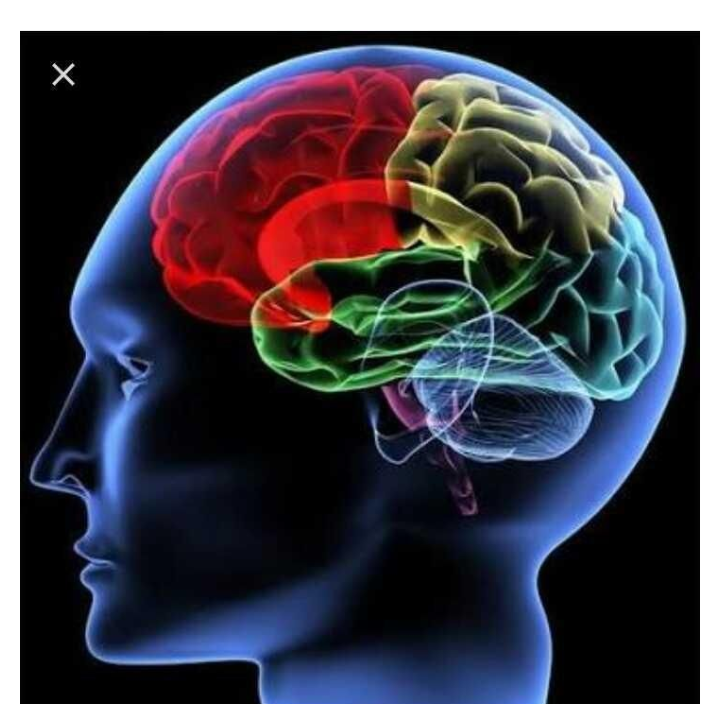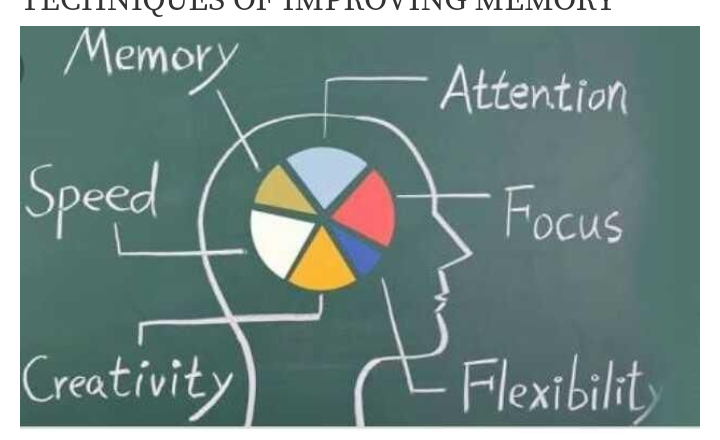HOW TO IMPROVE YOUR MEMORY

The brain is an organ that serves as the center of the nervous system in all vertebrate and most invertebrate animals. The brain is located in the head, normally close to the sensory organs for senses such as vision or touch. The brain is the most complex organ in a vertebrate's body.
The human brain weighs about three pounds [1.4 kg] and is roughly the size of a grapefruit, yet it contains some 100 billion neurons, or nerve cells, all of which form an incredibly complex network. Indeed, just one neuron may be connected to 100,000 others. This wiring gives the brain the potential to process and retain a vast amount of information. The challenge, of course, is for a person to recall the information when it is needed. Some excel at this, including many with little if any secular education.
Our memories involves 3 stages which includes encoding ,retrieval and decoding. The brain receives information and register it which can be stored for future use.Memory failure occurs when any one of these three stages develope fault.
Memory is divided into 3 namely sensory memory, short-term memory, and long-term memory. Sensory memory receives information from stimuli through the senses, such as smell, sight, and touch. Short-term memory, also called working memory, holds small amounts of information for short durations. Long-term memory hold information for a long period of time.
TECHNIQUES OF IMPROVING MEMORY

1, paying attention: interested and, where possible, take notes. Note-taking not only focuses the mind but also enables a listener to review the material later.
2, understanding : understanding is essential because Understanding illuminates the relationship between the parts, knitting them together to form a logical whole for example if a student understands how organic compounds are formed it will be easier for him to write the formulas.
3,recitation : repeatation strengthen the neural connections.
4,organization : similar concept or or ideas can be categorized. This makes it easy to memorize.
5,visualisation : the mental picture of what we want to memorize. This draw out the map. Visualisation makes use of different lump of the brain .
6,consolidation : this involves reviewing what we have learnt . This can be done by allowing the information to soak .
7,association: this involves Linking thoughts to memories already stored makes encoding and retrieving easier, the association serving as a cue.
8, use of mnemonics :this is a useful way of memorization. Like combining the initial letter or letters of a group of words to form a new word for example in trigonometry quadrants we we use CAST for cosine,, all,sine,tan which are 4th ,1st ,2nd ,3rd respectively in anti clockwise directions.
Aditionally
■learning new skills, a new language, or a musical instrument stimulates our memories.
■ pay attention on the most important things.
■drinking plenty of water boost the memory.
Dehydration causes mental disorientation.
■sleep enough . Brain stores memory during sleep.
■avoid smoking and alcoholism . Alcohol abuse retard short-term memory and alcoholism can lead to a deficiency of thiamine, a B-vitamin that is essential to the proper working of the memory. Smoking decreases oxygen to the brain.
■take enough exercises
■eat food rich in vitamin B.
Doing yoga can also increase your memory power..😊